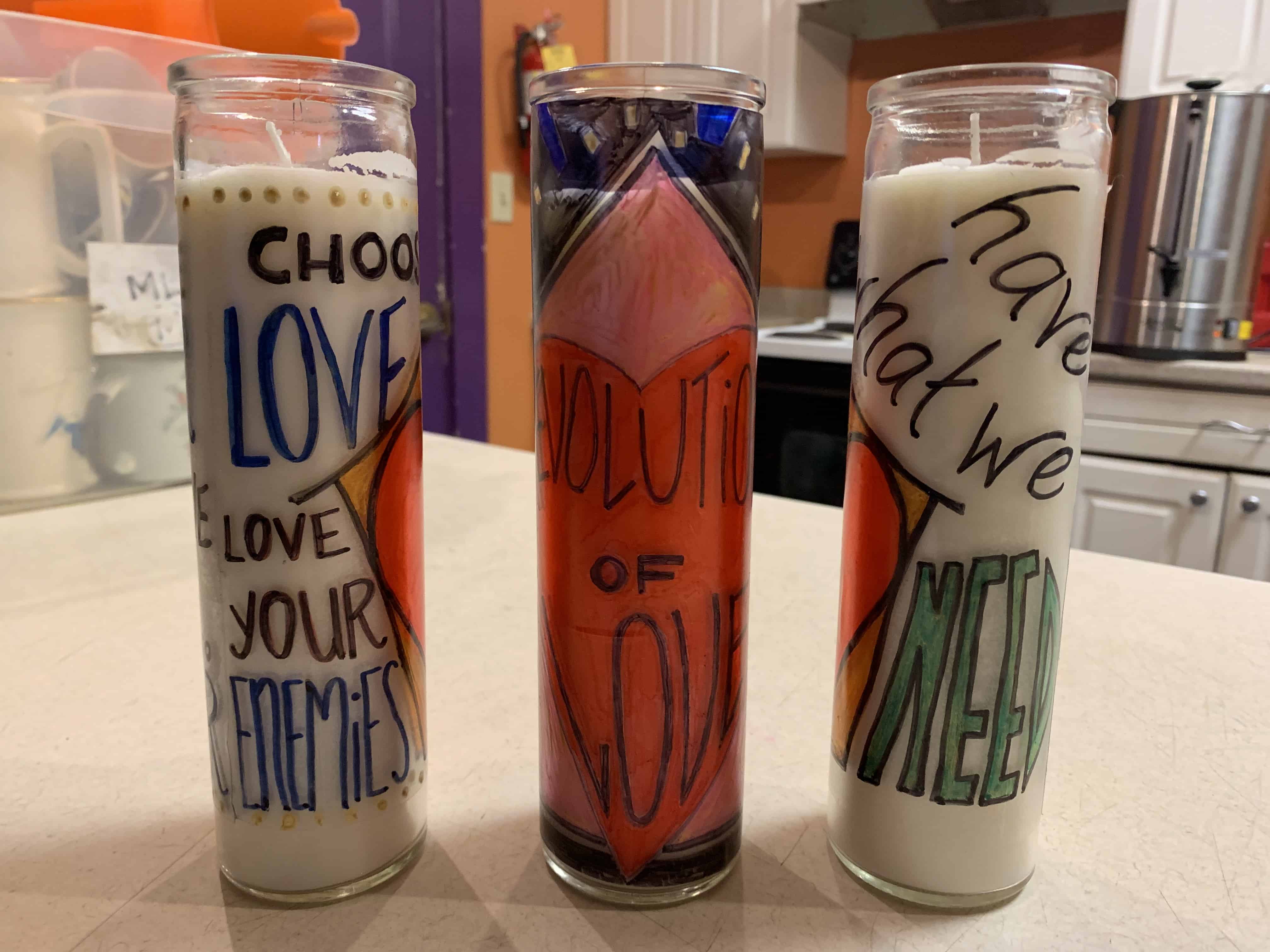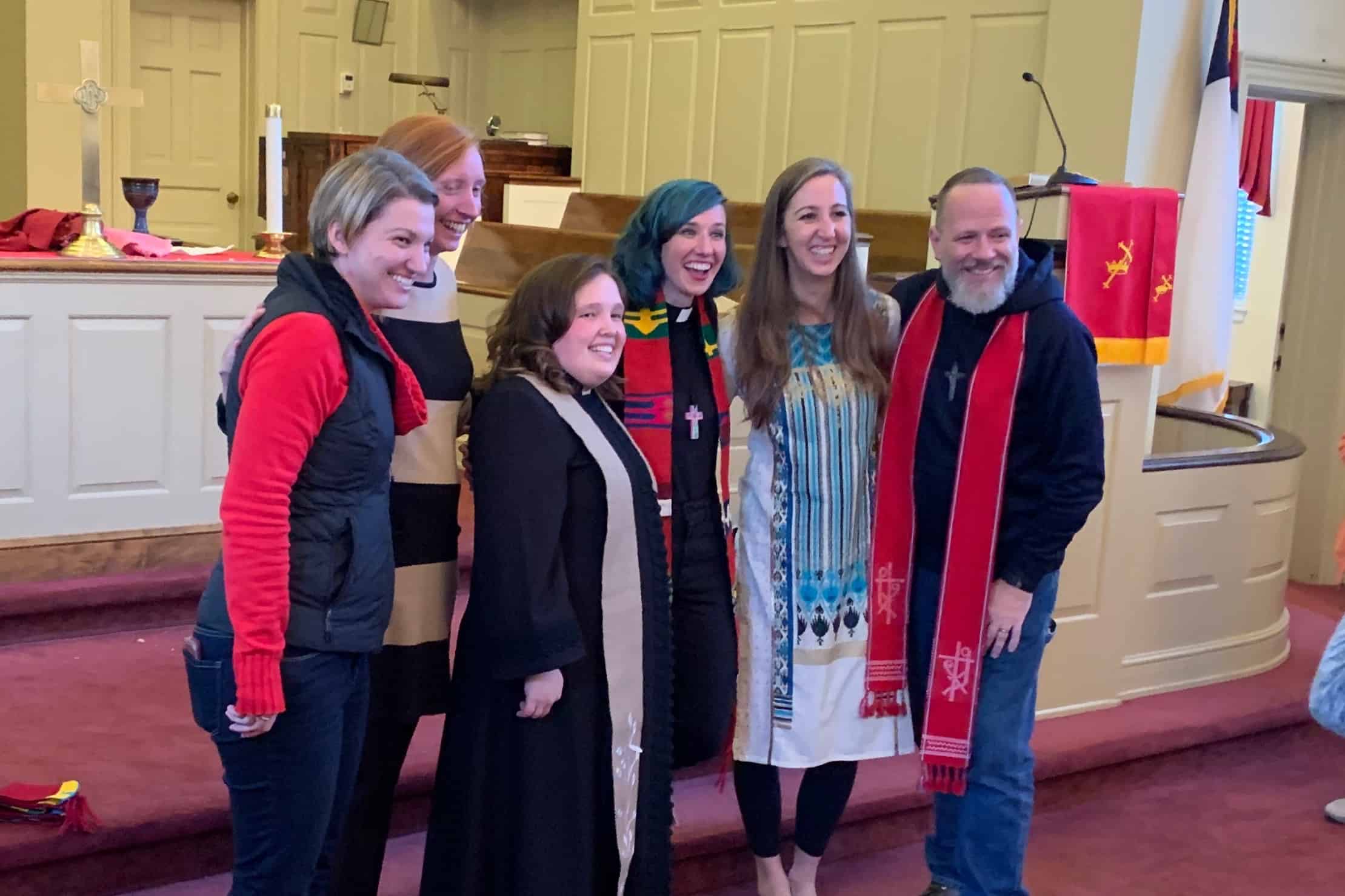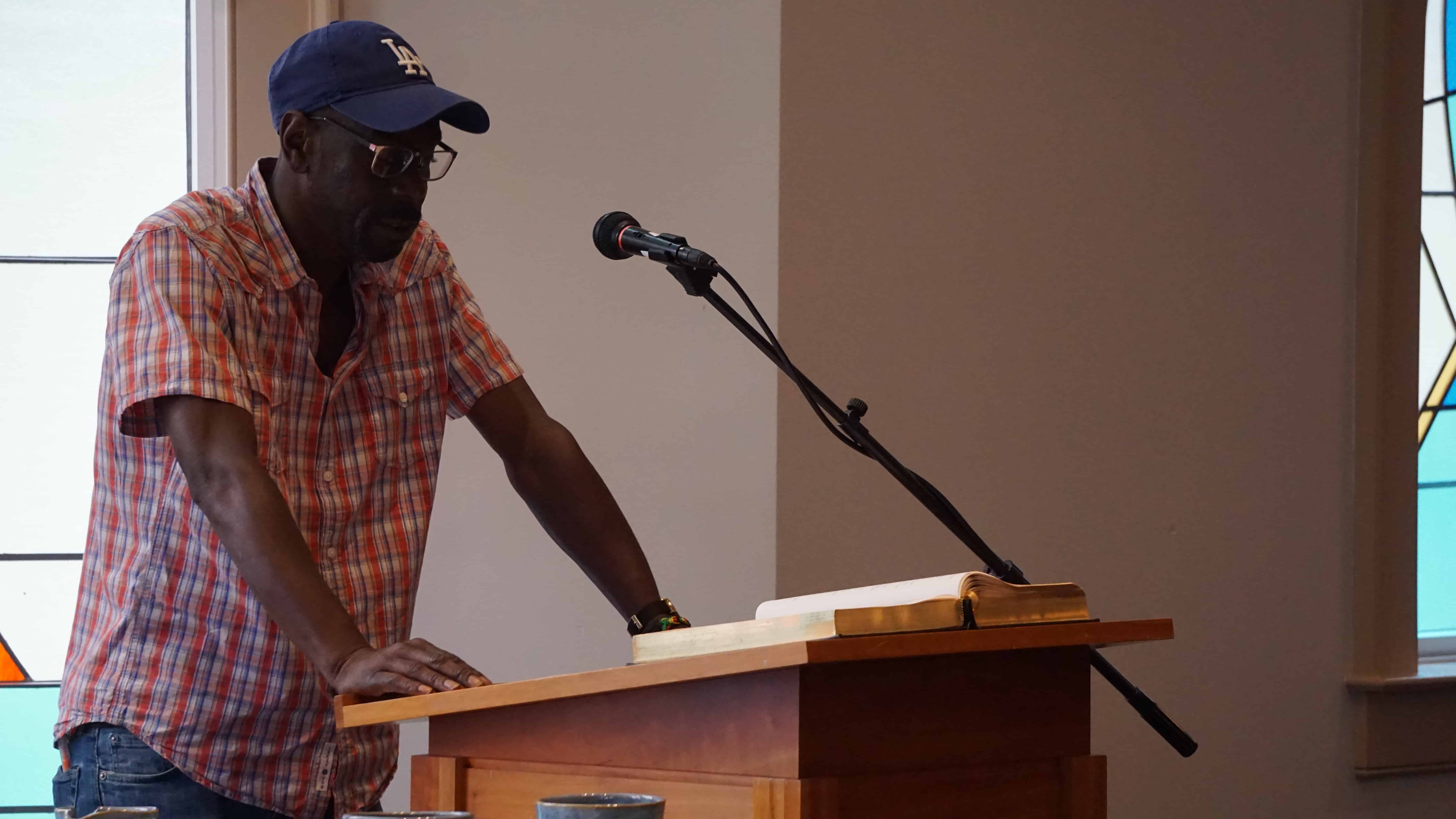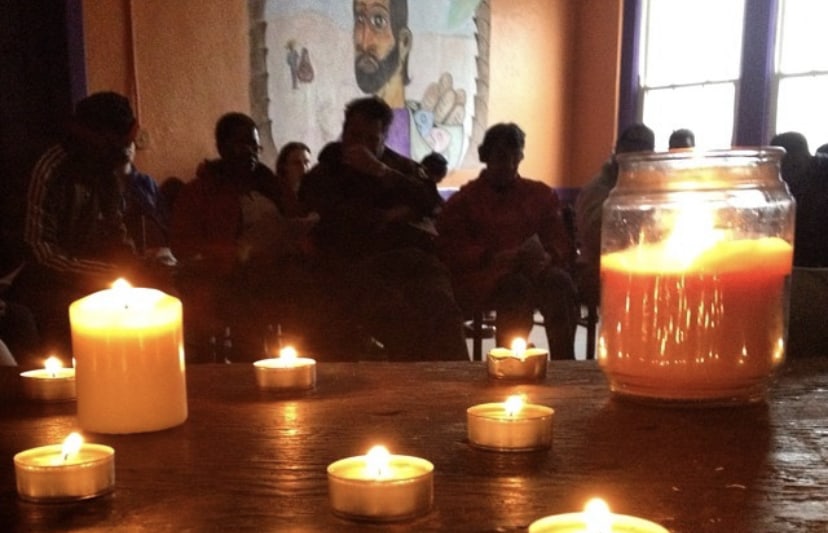By: Rod Reimer
Isaiah 58:1-12
Reflection—v. 6 ‘loose the chains of injustice and untie the cords of the yoke’
Dr. Martin Luther King declared that the ‘ultimate measure’ of a human being is not where we stand ‘in moments of comfort and convenience’ but where we stand ‘at times of challenge and controversy.’ Those words are so very true and appropriate to all of us today. Many of my brothers and sisters who are on the street find themselves weighed down by the chains of injustice, tied to a yoke of oppression, seemingly forgotten, left to wander without shelter, hungry, thirsty, and left to feel unloved. In Isaiah 58, the prophet Isaiah ben Amoz tells us not to turn away from our own ‘flesh and blood,’ for we are all brothers and sisters created by God. We are to ‘loose the chains of injustice and untie the cords of the yoke, to set the oppressed free…share [our] food with the hungry and to provide the poor wanderer with shelter…to clothe the naked.’ In doing these things, our light ‘will break forth like the dawn’ and our light ‘will rise in the darkness.’ The great news is that we do not have to do this alone, for ‘righteousness will go before you and the glory of the Lord will be our rear guard.’ When we call, the Lord will answer. When we cry for help, God will say, ‘Here am I.’ The Lord will guide us always and will satisfy our needs in a ‘sun-scorched land.’ I give thanks for what I am experiencing at Mercy with all of my brothers and sisters, and I pray that all of us may follow the prophet Isaiah’s directions always.
Prayer Lord, help your people to be a light in these times of challenge and controversy
Friday, February 28th
By: Bethany Apelquist
Matthew 6:1-6, 16-21
Reflection – v.5 ‘whenever you pray’
If you have ever visited Mercy during prayer time, you have probably felt the presence of the Spirit and felt the warmth of community. You may have sensed some peace in the bustle of a busy city. As we all squeeze into the small basement church, always making room for one more person to join, there is a sense that this thing we do together— gathering to pray—is important, even sacred. I think that this is the kind of prayer that Matthew is talking about. I don’t think Matthew is arguing that praying together or in front of others is wrong. Rather, he believes that prayer is a holy moment, a moment in which we stand just a bit closer to God–a moment of refuge in the midst of the hardships of our lives. Prayer isn’t about one person being the center of attention. Prayer is about the community holding each person as equally important to God and holding God’s presence in the center of our lives together. Prayer is a moment that makes room for one more person to join. Prayer is a moment in which together we hold the joys and the concerns of our community in our hearts, knowing that God is close to us, that God cares for the things we care about. So this Lent may we make room for prayer in our lives. May we remember that God is present with us, and may we remember that we aren’t called to do this alone, but that we are called to do this in beloved community.
Prayer Thank you God for being present with us and for the joys of community.
Thursday, February 27th
By: Ivan Cooley
Matthew 6:1-6, 16-21
Reflection—v. 5 ‘do not be like the hypocrites’
Usually when I come home I turn on the TV. Until the other day when I turned on the TV and it was dead. I panicked, because what was I going to do without my TV?! When I get on the train, I guarantee that 60-70% of the people around me are looking at the screen on their phones. I’m amazed at how many people are addicted to their screens. But then when my TV went out, I had to admit that I was addicted to a screen too! But then I started playing my music. Since I had gotten the TV I wasn’t listening to music near as much. I couldn’t concentrate on the music because I wanted to watch TV. The next day I was downtown walking and there on the sidewalk were some speakers—I took them home, plugged them into my phone—it worked! The music was sounding good! Oh, I see what I’ve been missing now! At first, when the TV went out, in the quiet, I started thinking thoughts that I didn’t want to, but then after a while, my mind let that stuff go, and I noticed that it wasn’t that bad without the TV. I had to give up the TV. It wasn’t my choice, but I believe that God leads us. When I could hear my music again, I began to hear other things. I could hear good things in my head for a minute, and then even when I turned the music off, I knew I was going to be alright and my mind went to a different place. What I thought was going to be a bad thing, God showed me, might be what I needed. Peace is a good thing.
Prayer Lord, sometimes I’m a hypocrite; in your mercy, help me to look at others with the same love you look at me.
Ash Wednesday, February 26th
By: Chad Hyatt
Matthew 6:1-6, 16-21
Reflection—v. 1, ‘Beware of practicing your righteousness’
I’m a pretty weird guy—I really love Ash Wednesday and Lent. I love the smells and bells when we gather with other neighborhood churches. I love the imposition of ashes and the chalky black crosses that paint our foreheads. I love coming to the table to share with one another in the bread and wine that is the body and blood of Jesus. And I really, really love the theme of penance. It’s old-fashioned and cringe-worthy enough of a word to make us ill at ease—and yet radical enough to invite us to serious transformation. Francis of Assisi often described himself as just a penitent. Think about it: one of the most beloved holy people in all of history thought of himself as living a life of constant turning from sin. That makes me feel that real holiness is actually about practicing it— which, for me at least, would have to include a lot of messing it up along the way—and not about some idealized version of being human that is pretty much out of our reach. But I wonder if we haven’t allowed penance to become too church-y. We might come closer to what Jesus was talking about if our repentance was less religious and more real world, less bourgeois aspirational ‘spiritual growth’ and more righting and repairing our relationships with other human beings and creation. Jesus commends alms-giving, prayer, and fasting not as status-driven virtue-signaling but as ways to widen the capacity of our hearts for doing right by our neighbor and realizing the kingdom of heaven in the here and now. I think that’s a kind of weirdness our world could use a little more of.
Prayer Jesus, help us always and ever to turn toward you—in our streets as much as in our pews.




